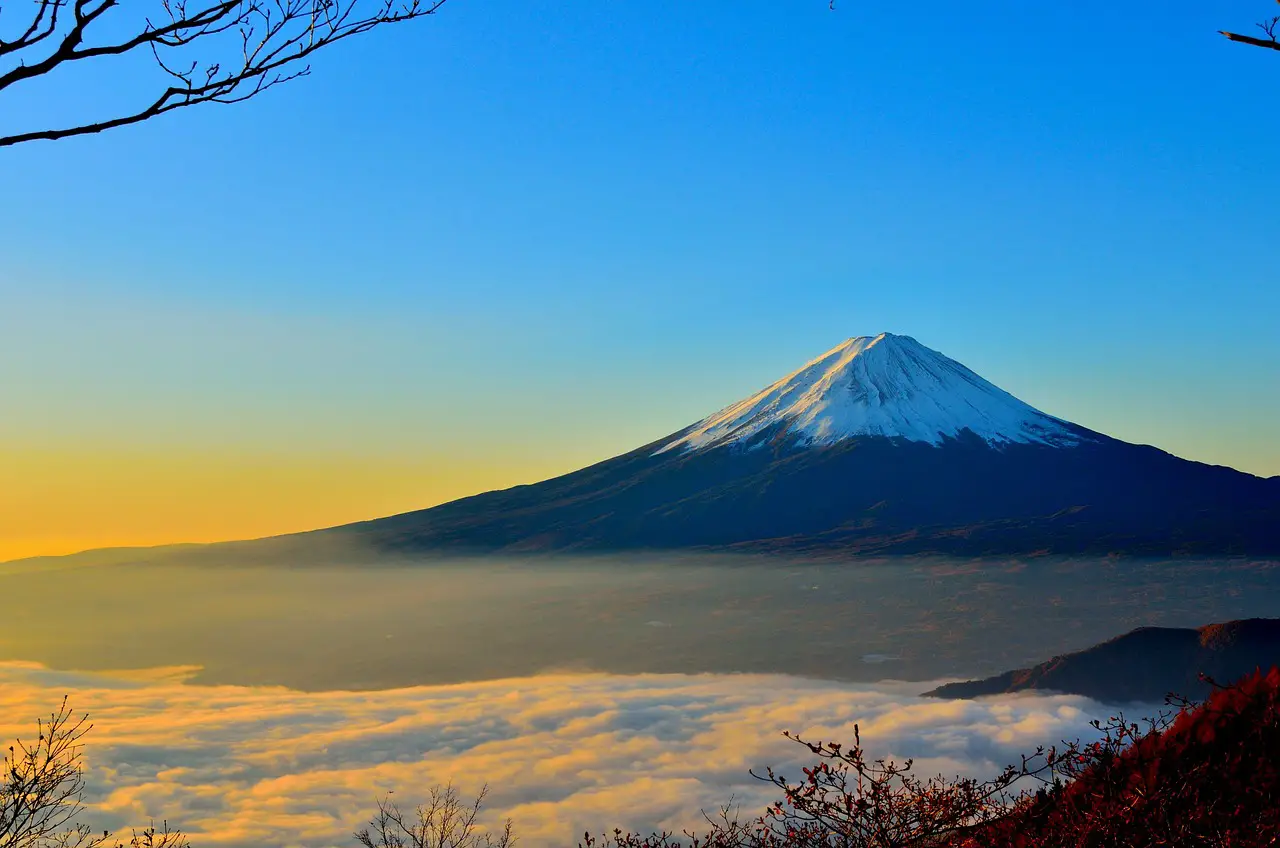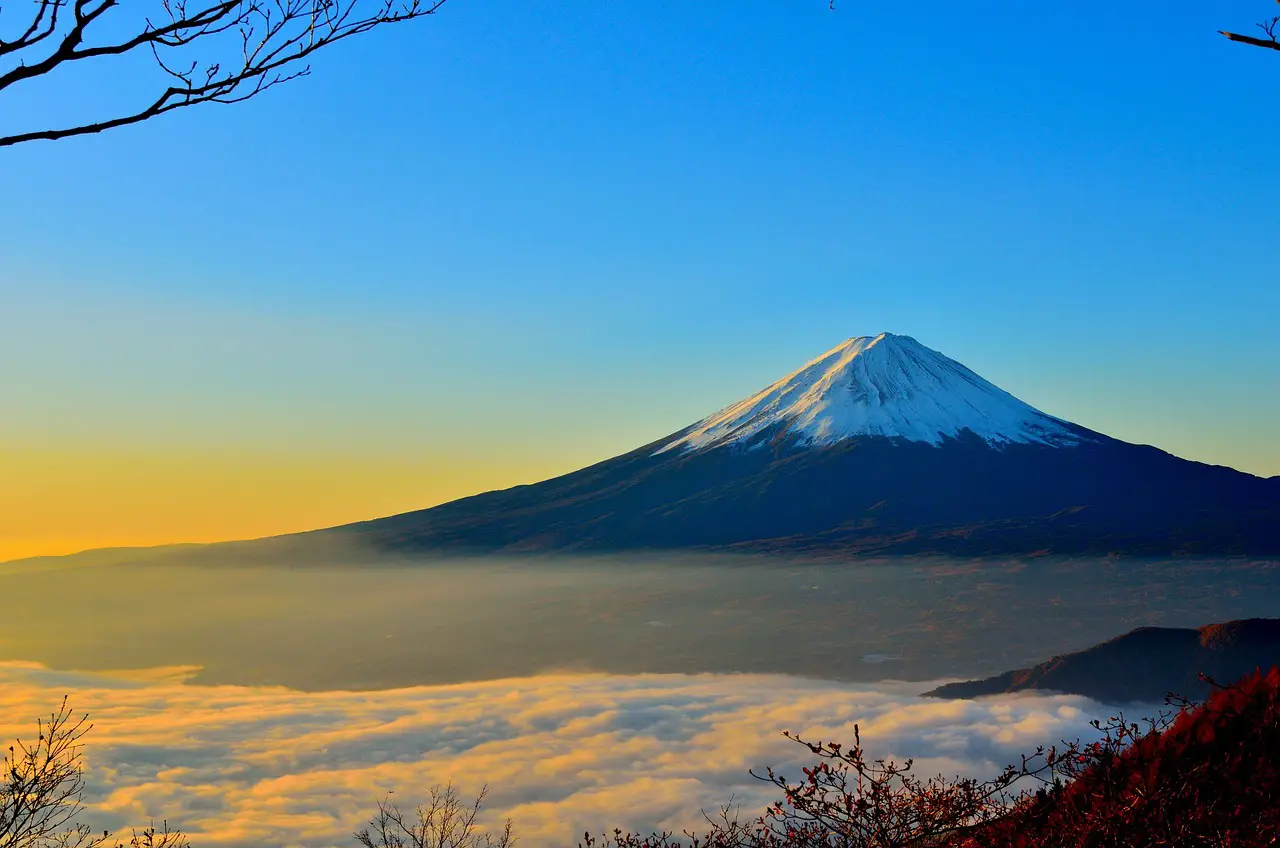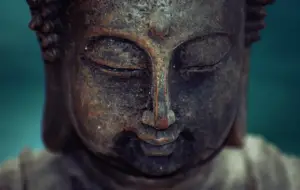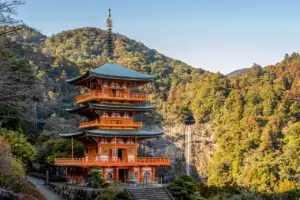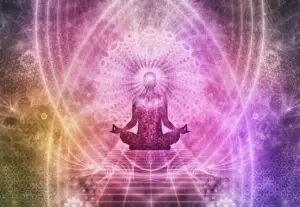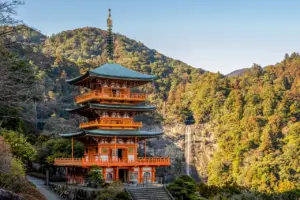Have you ever wondered about the role of religion in Japanese ethics and values? Japan has a rich religious history, with a variety of traditions and beliefs that have shaped the country’s culture and society.
From Shinto to Buddhism, religion has played a significant role in shaping the values and ethics of the Japanese people.
Religion in Japan is not just a matter of personal belief, but also plays a role in shaping social norms and expectations. The influence of religion can be seen in everything from daily life to art and culture.
Understanding the role of religion in Japanese ethics and values can provide insight into the country’s unique cultural identity and the ways in which it has evolved over time.
Let’s explore the impact of religion on Japanese society and how it continues to shape the country’s values and beliefs.
Key Takeaways
- Respect for ancestors and connection with nature are fundamental values in Japanese culture.
- Shintoism and Buddhism are the two main religious traditions in Japan, influencing government policies related to the environment, healthcare, and social welfare.
- Traditional religions like Buddhism and Shintoism are important in Japanese life, with many people incorporating religious practices into their daily routines.
- Religion has influenced a wide range of creative expressions in Japanese art and culture, including architecture, literature, and traditional performing arts.
Overview of Japanese Religious Traditions
Let’s delve into the fascinating world of Japanese religious traditions and discover how they shape the values and ethics of the Japanese people.
Japan has a rich cultural heritage that is deeply intertwined with religion. The country has a unique pantheon of deities, known as kami, which are worshipped in a variety of ways.
Shinto, which literally means ‘the way of the gods’, is the indigenous religion of Japan and is closely tied to the country’s culture and history. Shinto beliefs center around the idea that everything in nature has a spirit or kami, and that these spirits can be appeased through rituals and offerings.
In addition to Shinto, Japan has also been heavily influenced by Buddhism. Buddhism was introduced to Japan in the sixth century and has had a profound impact on the country’s religious and cultural landscape.
One of the key beliefs of Buddhism is the idea of impermanence, which is the notion that everything in life is subject to change and that nothing lasts forever. This belief has played an important role in the development of Japanese aesthetics, as seen in the concept of wabi-sabi, which embraces the beauty of imperfection and impermanence.
Together, the Shinto and Buddhist traditions have shaped the values and ethics of the Japanese people, and have played a significant role in the country’s history and culture.
The Influence of Religion on Japanese Ethics and Values
As you explore the influence of religion on Japanese ethics and values, you’ll see that respect for ancestors is a fundamental aspect of the culture. This respect is often expressed through rituals and ceremonies that honor those who have come before.
Additionally, the connection with nature is another important value in Japanese culture, as it’s seen as a source of inspiration and spiritual connection.
Finally, a sense of community is highly valued in Japan, with strong ties to family, friends, and local communities. All of these values are deeply intertwined with Japanese religious traditions, shaping the ethical and moral framework of the culture.
Respect for Ancestors
Honoring ancestors is a fundamental aspect of Japanese culture. Families often gather to pay their respects at ancestral gravesites during the annual Obon festival. This practice reflects the importance of family and the continuity of traditions in Japanese society.
Ancestors are believed to have a continued presence in the lives of their descendants. Their spirits are thought to offer guidance and protection. This respect for ancestors is also reflected in the Japanese attitude towards history and tradition.
Japanese society places a high value on preserving and honoring the cultural heritage and historical legacy of the nation. This can be seen in the numerous cultural festivals and traditions that have been passed down through generations, as well as in the preservation of historical sites and artifacts.
Overall, the Japanese emphasis on respecting ancestors and traditions highlights the importance of continuity and preservation in their society.
Connection with Nature
Immerse yourself in the natural beauty of Japan, where the mountains, forests, and oceans all hold a special significance in the culture and daily life. The connection with nature is deeply ingrained in the Japanese psyche, and it is evident in their religious and ethical beliefs. Shintoism, the indigenous religion of Japan, emphasizes the importance of the natural world and views nature as sacred. This belief is reflected in the way Japanese people interact with the environment, from the way they maintain their gardens to the way they approach outdoor activities such as hiking and fishing.
To further understand the importance of nature in Japanese culture, let’s look at the following table:
| Element | Significance | Example |
|---|---|---|
| Mountains | Symbol of strength and stability | Mt. Fuji, a UNESCO World Heritage Site |
| Forests | Source of spiritual renewal and purification | Yakushima Island, a UNESCO World Heritage Site |
| Oceans | Gateway to the divine | Miyajima Island, home to the Itsukushima Shrine |
The table highlights the significance of nature in Japanese culture, and how it is deeply intertwined with their religious and ethical beliefs. The Japanese people view nature not as something to be conquered, but rather as something to be revered and respected. This connection with nature has also led to the development of various eco-friendly practices in Japan, such as the use of renewable energy sources and the implementation of strict waste management policies. It is clear that for the Japanese, the connection with nature is not just a belief, but a way of life.
Sense of Community
You’ll feel a strong sense of belonging when you witness the tight-knit communities found throughout Japan. Religion plays a significant role in fostering this sense of community, as Japanese people usually participate in religious activities together with their families and neighbors. This communal practice is often attributed to the collectivist nature of Japanese society, where people prioritize the group’s welfare over individual interests.
Religious practices in Japan often involve visiting local shrines or temples, where the community comes together to celebrate festivals and rituals. It’s common for people to make offerings, pray for good fortune, and participate in communal meals during these events. These activities create a sense of unity and shared identity among the community members.
Moreover, religious institutions in Japan often provide various social welfare services, such as disaster relief and care for the elderly, which further reinforces the sense of community and belonging. Overall, religion in Japan plays a crucial role in building and maintaining strong communal ties, highlighting the importance of social harmony and cooperation in Japanese ethics and values.
Impact of Religious Beliefs on Japanese Daily Life
When you wake up in Japan, the first thing you might notice is the sound of the temple bells ringing in the distance, signaling the start of a new day filled with religious rituals and traditions.
Religious beliefs have a significant impact on Japanese daily life, from the way people dress to the food they eat. For example, many Japanese people start their day with a simple prayer or offering of incense at a local shrine or temple. They also often wear amulets or charms to protect them from harm or bring good luck.
Furthermore, religious beliefs influence the way people interact with each other and the world around them. Respect for nature and living creatures is a central tenet of many Japanese religions, such as Shintoism and Buddhism. This respect is reflected in Japanese culture, where environmentalism and animal welfare are taken seriously.
Religious beliefs also inform the way Japanese people conduct business and social relationships. For example, honesty, humility, and respect for others are highly valued, and many business deals and other transactions are preceded by rituals and ceremonies designed to bring good fortune and foster good relationships.
The Relationship Between Religion and the State
As you delve deeper into the relationship between religion and the state in Japan, you’ll discover that there’s a strict separation of religion and politics.
The Japanese constitution guarantees freedom of religion and prohibits any form of state-sponsored religion.
However, religion still plays a significant role in government policies, particularly in areas such as education, social welfare, and cultural preservation.
Separation of Religion and Politics
If you want to understand the role of religion in Japanese ethics and values, it’s important to consider the separation of religion and politics.
In Japan, there is a clear distinction between these two spheres, which prevents religious institutions from interfering with the government’s decision-making process. This separation of religion and politics is based on the idea that religion should remain a personal matter, and that the state should be responsible for promoting the common good of all citizens.
To better understand the separation of religion and politics in Japan, here are three key points to consider:
-
The Japanese constitution, which was adopted in 1947, guarantees freedom of religion and prohibits discrimination based on religion. This means that the state cannot promote or favor any particular religion over others.
-
Japanese political parties are not affiliated with any religious organizations. This helps to ensure that religious groups do not have undue influence over the government.
-
Japanese politicians are expected to maintain a neutral stance on religious matters. This means that they shouldn’t use their position to promote or endorse any particular religious belief, and that they should respect the religious beliefs of all citizens.
Influence of Religion on Government Policies
Now that we’ve discussed the separation of religion and politics in Japan, let’s delve into the influence of religion on government policies.
Although there is a clear separation between the state and religion in Japan, religion still plays a significant role in shaping the country’s values and ethics. This, in turn, influences government policies.
Religion, particularly Shintoism and Buddhism, has deeply ingrained itself in Japanese culture and society. The values and beliefs of these religions have influenced everything from the way the Japanese approach nature and the environment to their views on death and the afterlife.
As a result, the government has had to take these values into account when implementing policies related to the environment, healthcare, and social welfare. For example, the Japanese government has implemented policies that promote the preservation of natural landscapes and the reduction of waste, which aligns with the Shinto belief in the sacredness of nature.
Overall, while religion may not have a direct hand in shaping government policies, its influence on Japanese culture and values cannot be overlooked.
Religious Festivals and Ceremonies
You’ll find that attending religious festivals and ceremonies in Japan is a great way to gain insight into the country’s unique culture and spiritual traditions. These events are an integral part of Japanese society and are celebrated throughout the year.
Here are three of the most popular festivals and ceremonies that you can attend:
-
Shinto Festivals: Shintoism is Japan’s indigenous religion, and its festivals are celebrated with great fervor. Some of the most popular Shinto festivals include the Setsubun Festival, the Spring Festival, and the Autumn Festival. These festivals are marked by colorful parades, traditional dances, and elaborate rituals.
-
Buddhist Ceremonies: Buddhism has been in Japan for over a millennium, and its influence can be seen in the many Buddhist temples and shrines that dot the landscape. Some of the most important Buddhist ceremonies include the Obon Festival, the New Year’s Eve Bell Ringing Ceremony, and the Hatsumode Ceremony. These ceremonies are marked by chanting, meditation, and offerings of food and incense.
-
Matsuri Festivals: Matsuri festivals are celebrated throughout Japan and are a time for communities to come together and celebrate their local traditions. Some of the most famous Matsuri festivals include the Gion Matsuri in Kyoto, the Awa Odori in Tokushima, and the Nebuta Matsuri in Aomori. These festivals are marked by elaborate floats, traditional dances, and colorful fireworks displays.
Attending these religious festivals and ceremonies is a great way to learn more about Japan’s unique culture and spiritual traditions. It’s also a great opportunity to experience the country’s hospitality and friendliness, as the Japanese are known for welcoming visitors with open arms. So, if you’re planning a trip to Japan, make sure to include some of these events in your itinerary.
The Role of Religion in Japanese Art and Culture
As you explore the role of religion in Japanese art and culture, you’ll discover that it has influenced a wide range of creative expressions.
Architecture, for instance, has been shaped by the country’s indigenous religions, as well as Buddhism and Shintoism.
Literature and poetry have also been heavily influenced by religious themes and motifs, with many great Japanese writers and poets drawing inspiration from their spiritual beliefs.
And traditional performing arts, such as Noh theater and Kabuki, often involve religious themes and rituals, making them important vehicles for exploring Japan’s religious heritage.
Architecture
The unique architecture of Japanese temples and shrines reflects the intricate and harmonious relationship between religion and culture. The design of these structures is characterized by a minimalist aesthetic and the use of natural materials such as wood, stone, and bamboo. At the same time, the intricate carvings and details in the woodwork and roof tiles showcase the intricate craftsmanship of the Japanese people.
Here are some interesting bullet points that describe the architectural features of Japanese temples and shrines:
- The use of a torii gate to mark the entrance to a shrine or temple
- The presence of a purification fountain or basin for visitors to cleanse themselves before entering
- The use of shoji screens and tatami mats in interior spaces
- The presence of a main hall (honden) where the deity is worshipped
- The incorporation of a garden or courtyard to create a peaceful and meditative atmosphere
These architectural elements not only convey the religious significance of these spaces but also reflect the appreciation for nature and the importance of simplicity in Japanese culture.
Literature and Poetry
Get ready to immerse yourself in the beautiful world of Japanese literature and poetry. You’ll discover the rich history and unique style that has captivated readers for centuries.
Japanese literature dates back to the 8th century. The publication of the Kojiki and Nihon Shoki are considered to be the earliest recorded works of Japanese literature. These works are a compilation of myths, legends, and historical events that played a significant role in shaping Japanese culture and identity.
Another notable work of Japanese literature is The Tale of Genji, written by Murasaki Shikibu in the 11th century. This novel is considered to be the world’s first novel and depicts the life of the aristocracy during the Heian period.
Japanese poetry is characterized by its concise and emotive style. Haiku, a form of Japanese poetry, is a popular form that consists of three lines with a total of 17 syllables.
Japanese literature and poetry are deeply rooted in Japanese culture and religion. They often reflect the values and beliefs of the Japanese people.
Traditional Performing Arts
Now that we’ve explored the influence of literature and poetry in shaping Japanese ethics and values, let’s delve into the world of traditional performing arts. These art forms have played a significant role in Japan’s cultural heritage and continue to inspire and entertain people from all over the world.
Traditional performing arts in Japan encompass a variety of disciplines, ranging from classical dance and music to puppetry and theater. Here are three examples of these art forms that have contributed to Japan’s cultural identity:
-
Noh is a form of classical Japanese theater that originated in the 14th century. It combines dance, music, and drama to tell stories about the human condition. Noh plays are characterized by their minimalist sets and costumes, and the use of masks to convey emotions.
-
Kabuki is another form of classical Japanese theater that emerged in the 17th century. Kabuki plays are known for their elaborate costumes, makeup, and stage designs. They often address social issues and are performed by all-male casts.
-
Bunraku is a form of traditional puppet theater that developed in the 17th century. Bunraku puppets are highly detailed and require three puppeteers to operate. The plays are often based on historical events or legends and explore themes of love, loyalty, and revenge.
Contemporary Religious Practices in Japan
Contemporary religious practices in Japan continue to shape the country’s values and social dynamics, reflecting a unique blend of traditional beliefs and modern influences. One example of this is the growing popularity of new religious movements, or shinshÅ«kyÅ, which emerged in the 20th century in response to the country’s rapid modernization and the breakdown of traditional social structures. These movements, which often combine elements of Buddhism, Shintoism, and Western spirituality, offer a new way of understanding and navigating the world in a rapidly changing society.
At the same time, traditional religions such as Buddhism and Shintoism continue to be an important part of Japanese life, with many people incorporating religious practices into their daily routines. For example, it is common for individuals to visit Shinto shrines to make offerings and pray for good luck or success, or to attend Buddhist temples for meditation and spiritual guidance. In fact, many of these practices have become so ingrained in Japanese culture that they are often viewed as more of a cultural tradition than a strictly religious one.
To emphasize the unique blend of traditional and modern influences in Japanese religious practices, the following table highlights some of the key elements of new religious movements in Japan:
| Key Elements of New Religious Movements in Japan | ||
|---|---|---|
| Syncretism of various religious traditions | Emphasis on individual spiritual growth | Use of modern technology and media for outreach and communication |
| Charismatic leaders and personal connections | Emphasis on community and social activism | Critique of mainstream society and politics |
Overall, the role of religion in Japanese ethics and values is complex and multifaceted, with both traditional and modern influences shaping the country’s cultural landscape. Whether through traditional practices or new religious movements, religion remains an important part of Japanese life and continues to play a significant role in shaping social and ethical norms.
Frequently Asked Questions
What is the most dominant religion in Japan today?
The most dominant religion in Japan today is Shintoism, which is deeply ingrained in the country’s culture and traditions.
Shintoism is an ancient, animistic religion that focuses on the worship of kami, which are divine spirits that inhabit natural objects and phenomena.
It emphasizes the importance of harmony with nature and ancestors, and is often intertwined with other religious practices such as Buddhism.
While the number of Japanese people identifying as religious has decreased in recent years, Shintoism continues to play a significant role in Japanese society, especially in the areas of festivals, rituals, and cultural practices.
How has the religious landscape in Japan changed over the past century?
Over the past century, the religious landscape in Japan has undergone significant changes. While Shintoism and Buddhism have historically been the dominant religions, Japan has seen a rise in non-religious individuals, with over 60% of the population reporting no religious affiliation.
Additionally, Christianity has gained a small but growing following in Japan, with about 1% of the population identifying as Christian. These changes can be attributed to a variety of factors, including modernization, globalization, and the declining influence of traditional institutions.
As Japan continues to evolve, it’s likely that its religious landscape will continue to shift and adapt to new societal and cultural norms.
Are there any restrictions on the practice of religion in Japan?
In Japan, there aren’t any direct restrictions on the practice of religion. The Japanese constitution guarantees freedom of religion and separation of religion and state.
However, there are some regulations on religious organizations, such as the requirement to register with the government and restrictions on fundraising activities. Some religious practices, such as those involving illegal drugs or harmful activities, are prohibited by law.
Overall, while there are some regulations in place, individuals in Japan are generally free to practice their religion of choice without fear of persecution or discrimination.
What is the role of non-religious ethical systems in Japanese society?
Non-religious ethical systems have played a significant role in shaping Japanese society. These systems, such as Confucianism and Bushido, emphasize moral values such as loyalty, respect, and self-discipline.
Confucianism, in particular, has been influential in Japan since the 6th century, and its teachings have greatly impacted the country’s social and political structures.
Bushido, on the other hand, is a code of conduct that emphasizes honor, courage, and loyalty, which were highly valued by the samurai class.
These non-religious ethical systems have helped to shape the moral character of the Japanese people and continue to influence their attitudes and behaviors today.
How do Japanese religious beliefs and values compare with those of other East Asian countries?
When comparing Japanese religious beliefs and values to those of other East Asian countries, it’s important to note that each country has its own unique cultural and religious history that shapes its ethical systems. However, there are some similarities and differences that can be observed.
For example, Japan shares with China and Korea a Confucian tradition that emphasizes the values of respect for authority, filial piety, and social harmony. However, Japan also has a strong Shinto tradition that emphasizes the importance of nature and ancestor worship, which is not found in the same way in other East Asian countries.
Additionally, Japan has a history of syncretism, where different religions and beliefs are blended together, which can make it difficult to distinguish specific religious beliefs and values. Overall, while there are similarities and differences between Japanese religious beliefs and those of other East Asian countries, it’s important to recognize the unique cultural and historical contexts that shape these values.
Conclusion
So, now you know about the role of religion in Japanese ethics and values! Japanese religious traditions, such as Shintoism and Buddhism, have had a significant impact on the country’s culture, ethics, and values. They have influenced daily life, art, and even the relationship between the state and its citizens.
Religious festivals and ceremonies play a crucial role in the Japanese cultural landscape. They provide an opportunity for people to come together and celebrate their shared beliefs and values.
Even though contemporary religious practices in Japan have changed, religion remains an integral part of the country’s identity. By understanding the influence of religion on Japanese ethics and values, you can better appreciate the unique cultural traditions of this fascinating country.



